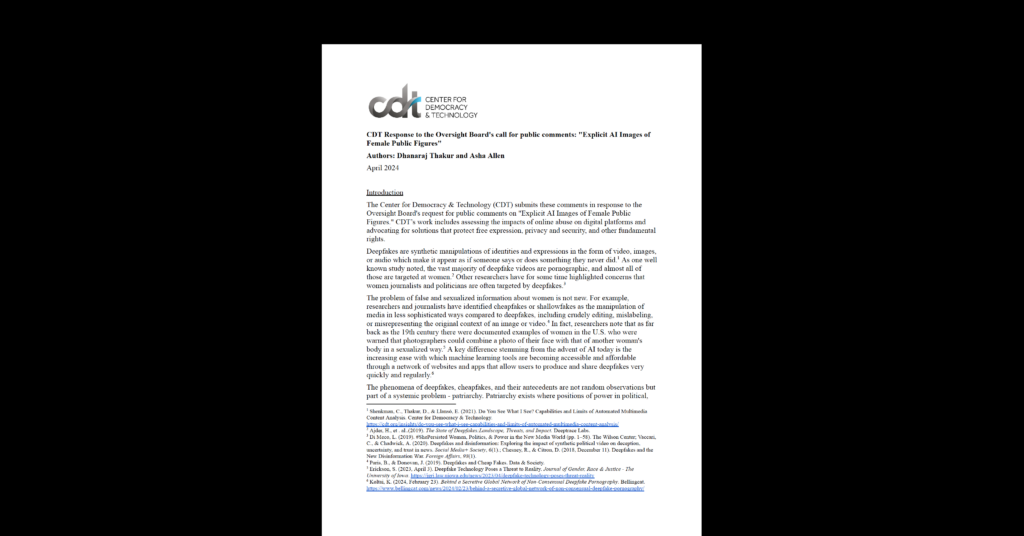Who’s to blame? Intermediary liability and why it poses a danger to the Internet
ISPs, other Internet access providers, and website hosts have always been essential to the functioning of the Internet, carrying communications and hosting content. In the Web 2.0 era, these technological intermediaries are more important than ever: they provide platforms for user-generated content, making it possible for people with little money or technical skill to share information and participate in dialogues on a global basis.
Throughout much of the Internet’s history, in both Europe and the U.S., technological intermediaries have been protected by laws stating that conduits and hosts are not liable for illegal content generated by their users. Under this principle, the creator of the illegal content is the one that should be liable, not the intermediary. Early adoption of policies protecting intermediaries from liability encouraged innovation and expanded opportunities for online commerce and free expression.
Today, however, governments and civil litigants around the world are seeking to impose liability on ISPs and other intermediaries. If subject to liability, intermediaries will strive to reduce their liability risk by either hosting less content or expending major resources to screen it before it is posted online. Erring on the side of self-protection, ISPs and hosts will likely block even lawful content. The end result would be to discourage innovation and diminish the value of the Internet.
CDT published a paper today drawing attention to the role of intermediaries in the development of the Internet.
The paper summarizes the legal approaches to intermediary liability in the U.S. and the European Union, both of which recognized the benefits of immunizing intermediaries. It also discusses examples of increased pressure on ISPs and content hosts to assume greater gatekeeping and law enforcement functions, even in democratic countries.
The paper warns of the dangers to Internet freedom and commerce if laws are adopted making technological intermediaries legally responsible for illegal or harmful content created by users of those services.


